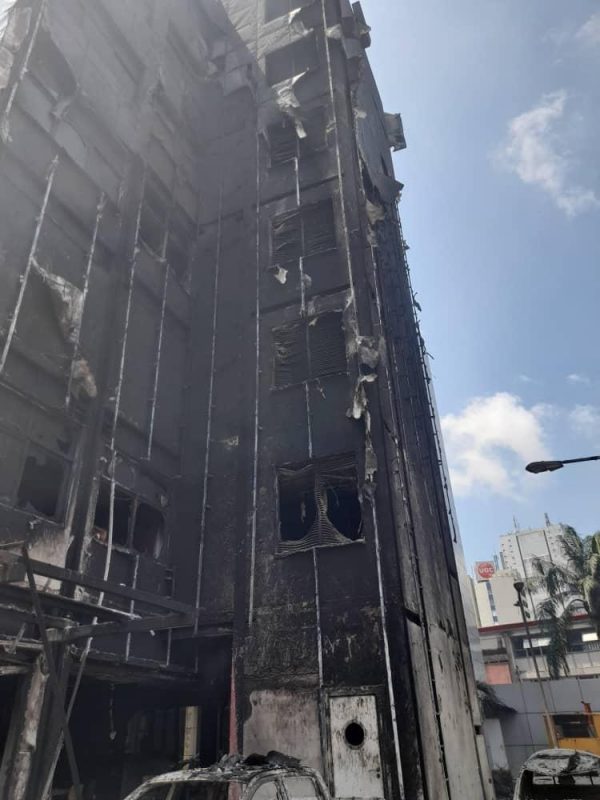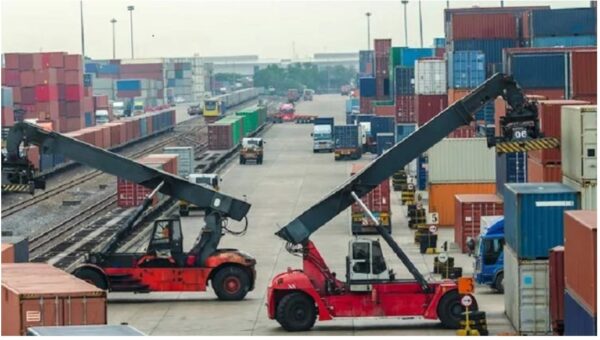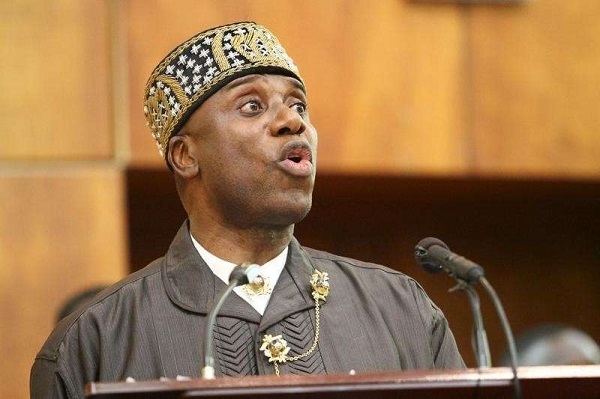How Post-Protests Recovery Plans Will Affect 2021 Budgets

*Supply chain loses N1.2trillion in 3 days to protests
Nigeria may have lost an estimated N1.2trillion in economic value in three days to the violent #EndSARS protests across the country last week, following the massive disruption in the supply chain system.
Business and economic experts who made this postulations in separate interviews with MMS Plus further enunciated how post-#EndSARs protests recovery plans will impact the 2021 national and states’ budgets.
This implies that the 2021 N13.08 trillion –draft budget tagged “Budget of Economic Recovery and Resilience” will have to undergo some review to accommodate fundamental exigencies induced by the protests, even with a glaring fiscal deficit of N5.20 trillion arising from the disparity in the proposed revenue and expenditure budgets of N7.89 trillion and N13.08.
Recall that before the three days violent protests precipitated by the Lekki Toll Gate night shooting, Lagos Chambers of Commerce and Industry(LCCI) had declared that the nation incurred loss of N700billion as a result of the earlier 14 days non-violent #EndSARS protests.
According to the President of LCCI, Mrs Toki Mabogunje, LCCI uncovered that the Nigerian economy has suffered an estimated ₦700 billion loss in the past fourteen days.
Mrs Mabogunje explained that the peaceful protest had started to witness various unintended outcomes, despite its positive and noble objectives.
She emphasized that these unintended outcomes coming from the frustration of the youths, had been at great cost to the economy and this continued to create bottlenecks and disruptions to businesses and the economy in general.
Nigerian youths mounted an unprecedented graduated protests against police brutality across the states of the country as protesters mounted blockades and barricades around major cities and interstate highways, a development that has adversely affected the economy with disruptions in social and economic lives. Badly impacted was the logistics value chain which was ground to a halt especially with the willful destruction of properties and the consequent imposition of curfew by various state governments to restore law and order.
Lives were lost across the states as a season of anomie set in with fears of imminent anarchy in the country.
Meanwhile, as many states continue to take stock of the extent of destructions occasioned by the protests, Lagos State government has declared that it would need over N1trillion to rebuild damaged properties while a total of 84 BRT buses burnt costs N3.9billion.
The Ag. Director General of Manufacturers Association of Nigeria(MAN), Mr. Ambrose Oruche said they were still compiling data on the extent of the disruption in the real sector, but acknowledged that the loses were huge.
On the supply chain disruption, “There are many manufacturing industries that have to kill their manufacturing cycles to remain afloat twenty four hours in a week. It is difficult to just stop production like that. The transport sector lost some money. Averagely, if we have N150,000 or N600,000 to move one container to Ibadan and we are moving 100,000 containers, that is already N6million to one place and if you look at it in terms of trucking from the port, already you are talking about 20 to 25million naira,” Chairman, Ports Consultative Council (PCC),Otunba Kunle Folarin said.
“ Now, if you look at the whole sub activities in the port system, the demurrage, berthage, the ground rent at the terminal operation, if ships are chartered, the charterers will be laughing wherever he is unless you can quote that under certain sections of the charter party that he is exempted from the daily payment of the vessel. If you take a VLCC carrier, which is a crude carrier which costs over $100,000 per day, if you delay her here for 13 days, that is already $1.2million. I don’t know how many VLCC carriers they have at the crude loading terminal. In my own view, the maritime industry has even lost over N700billion because we should not be looking at it from the transport system alone”. Folarin added.
He further asserted, “Again, the manufacturing cycle has been disrupted. The last statistics shows that we have about 5000 manufacturing industries in Nigeria. All of them have been waiting. The issue here is that some keep very low inventories in order to save on storage. So straight from the port, they go into manufacturing room and they start processing. But now there is no supply and so they are forced to be idle. On the market place, inflation in this one week to me, aggregately has risen by more than 5 percent.
“ But in sectors, if you take it one by one, food prices have risen by almost 100 percent because there is no supply from the basss and therefore if you go to the neighborhood shop be ready to pay anything. So by the time the protests stretches over to this weekend, over N1.2trillion must have been lost and can never be regained back because it cuts across every activities , from the supplies to the demand and the storage”. He concluded.
To Mr. Obiorah Madu, Chief Executive Officer(CEO) of Multimix Limited, a supply chain capacity building firm, Supply chain in Nigeria has always been in comatose as a result of obvious lack of infrastructure but the twin challenges of Covid-19 and the protests against police brutality brought it down to its knees.
“I pity those who are doing business in this country and that includes me even though I am in service sector. Service has its supply chain. I was supposed to deliver a lecture last week before the curfew. But it was disrupted by the protests. So both service and manufacturing have supply chain.
“After the destruction arising from protests, the supply chain has further been destroyed. Over 80 buses were destroyed and if the protests is over you will begin to experience shortage of vehicles. No trailer carrying yam from Benue could arrive Lagos. Or, did the ones coming from Jos with tomatoes arrive. Do you know what the manufacturers have lost ?” He said.
According to the Managing Director of Atlantique Marine and Engineering Services Limited(AMES), Engr. Charles Akhigbe, “Now, the distribution cost has gone up because of the cost of logistics. Bad road is hampering movement across the nation not just in Lagos.
All these things have been affected because there is no movement, Under covid-19 you could bribe police on the road. During the protests if these boys catch the truck there will vandalize it. So the manufacturers are safer shutting down until there is semblance of sanity. Now, we have come to realize that it is better to have all the thieving police on the road than not to have them in the first place.”
On post-protests recovery plan, the PCC Chairman said, federal and state governments affected will have to review and adjust their 2021 budgetary plans to accommodate the new developments.
“We look at the recovery plans with the governments reviewing their capital and recurrent expenditure in order to have savings for the first quarter of 2021, knowing fully well that the expenditure profile of the last quarter affects the flow of resources in the first quarter of every year. First of all, we look at the increase in costs in terms of budgetary allocation for 2021. There will be increase in police salaries and their equipment procurement.
“Also, in education sector, there will be a fulfillment of ASUU agreement in 2021 to stop their strike in the last six months. Having said all that, you now continue to ask how the economy will grow to recovery from the perspective that the state, particularly Lagos State will need more help for recovery because in terms of the proportion of destruction arising from the protest, there is more evidence in Lagos than any other state in Nigeria.” Otunba Folarin added.







